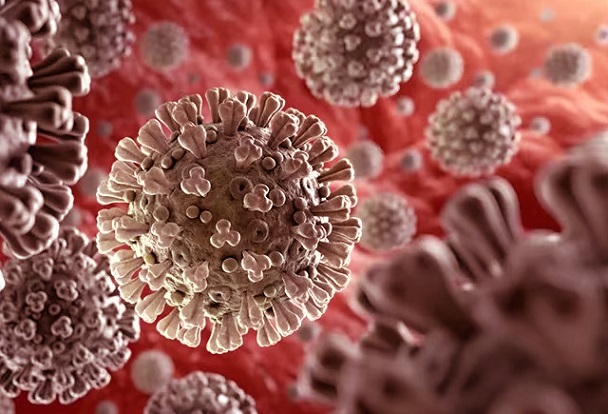Nikhil Prasad Fact checked by:Thailand Medical News Team Sep 03, 2025 5 months, 3 weeks, 1 day, 1 hour, 6 minutes ago
Medical News: A new way to fight coronaviruses
Scientists from several leading institutions in Germany, the United States, and China have discovered a surprising weakness in coronaviruses, including SARS-CoV-2. The research shows that a protein called LMP7 plays a critical role in blocking viral growth. Even more important, the cancer drug Ixazomib and its close chemical cousins can target this protein and sharply reduce coronavirus replication. This
Medical News report highlights why these findings could change how doctors approach future outbreaks.
 New Coronavirus Weakness Found as LMP7 Emerges as a Drug Target
New Coronavirus Weakness Found as LMP7 Emerges as a Drug Target
The study was led by teams at the Max-von-Pettenkofer Institute of Virology at Ludwig-Maximilians-University of Munich, the German Center for Infection Research (DZIF) in Munich, Charité–Universitätsmedizin Berlin, the Technical University of Munich, the University Medical Center Hamburg-Eppendorf, Merck KGaA in Darmstadt, and the University of California, Los Angeles (UCLA).
LMP7 the hidden antiviral factor
LMP7 is part of the body’s “immunoproteasome,” a specialized molecular machine that helps break down harmful proteins and display pieces of them to immune cells. This process allows the body to recognize and destroy infected cells. Researchers found that when SARS-CoV-2 infects cells, it attacks and lowers the levels of LMP7. The virus even uses two of its own proteins, known as Nsp13 and Nsp16, to interfere with LMP7 and block immune detection.
To understand LMP7’s importance, scientists created human airway cells that lacked this protein. Without LMP7, the virus multiplied much faster, proving that LMP7 naturally acts as a barrier against coronavirus growth.
Repurposing a cancer drug for viral infections
In a large drug screening experiment, the researchers identified three powerful compounds—Ixazomib and two of its chemical relatives—that strongly stopped coronavirus replication. These compounds were able to cut viral growth in multiple test systems, including cells infected with SARS-CoV-2. Importantly, the drugs worked with minimal harm to the cells themselves, suggesting they could be safe for future development.
Ixazomib is already used to treat multiple myeloma, a type of blood cancer. It works by targeting LMP7 and other proteasome components. The new study shows that the same drug could also prevent coronaviruses from releasing their genetic material inside cells, effectively shutting down the infection before it takes hold.
Why these results matter
The discovery that an existing approved drug like Ixazomib can fight coronaviruses opens the door to rapid development of new treatments. It also highlights LMP7 as a key weakness that viruses exploit to escape immune attack. By protecting or manipulating this protein, doctors may one day have another tool to prevent severe coronavirus disease.
The conclusion of the research is
both hopeful and practical. Even though the exact way Ixazomib works against viruses may involve more than just LMP7, the evidence clearly shows it can slow down or stop coronavirus replication. This means the drug, or improved versions of it, could serve as a ready-to-use defense in future coronavirus outbreaks. With the world still reeling from COVID-19, such discoveries are essential reminders that hidden weaknesses in viruses can be exploited for human health.
The study findings were published in the peer reviewed journal: Pathogens.
https://www.mdpi.com/2076-0817/14/9/871
For the latest COVID-19 News, keep on logging to Thailand
Medical News.
Read Also:
https://www.thailandmedical.news/news/breaking-news-florida-study-shows-that-sars-cov-2-causes-histological-changes-to-the-gastrointestinal-tract
https://www.thailandmedical.news/news/cerebral-microstructural-changes-linked-to-cognitive-olfactory-and-fatigue-symptoms-in-post-covid-condition
https://www.thailandmedical.news/news/doctors-in-japan-warn-that-covid-19-infections-can-cause-new-onset-of-kleine-levin-syndrome
